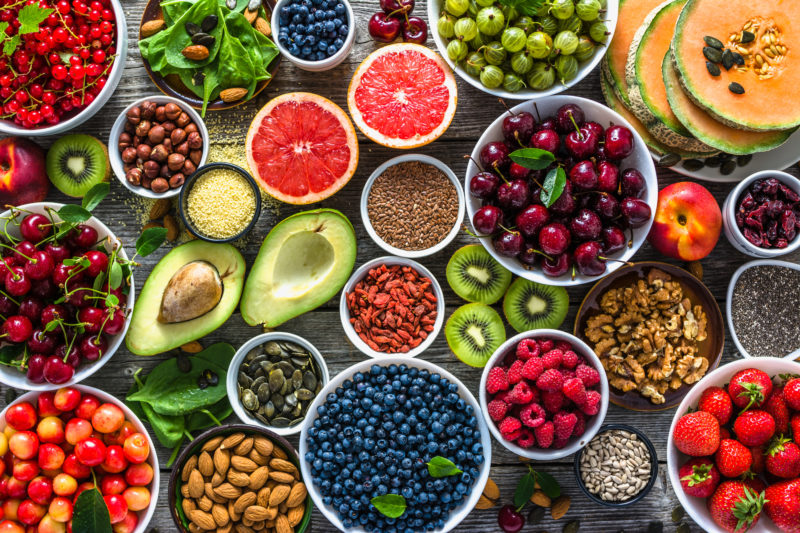
As the days get shorter and the weather colder, you are at a higher risk of catching a cold or seasonal flu. To better get you through winter, add these 8 ingredients to your meal plan for boosted immunity and better health.
1. Citrus Fruits
Citrus fruits like lemon, orange, clementine, or grapefruit are full of vitamin C, a water-soluble vitamin necessary for the growth, development, and repair of all body tissues. What’s more, they are powerful antioxidants that neutralize free radicals to protect cells and are a powerful common cold protector. Drink fresh-pressed orange juice, add grapefruit to your salad, or have lemon water in the morning to up your daily vitamin C intake.
2. Fermented Foods
Live yogurt, Miso soup, kefir, kombucha, soft cheeses, sauerkraut, or sourdough all have one thing in common: they are powerful probiotics, which are live microorganisms that provide a number of health benefits by improving or restoring your gut flora.
3. Salmon
Among its many health benefits, vitamin D is essential to keeping your bones, teeth, and muscles healthy. Since humans primarily source vitamin D from sunlight, which, in many places, is scarce in the cold winter months, it’s essential to supplement it. You can choose to eat more salmon, other oily fish, eggs, or shitake mushrooms, which contain vitamin D in small amounts, or can opt to take a good vitamin D supplement.
4. Kale
Much has been said of the infinite powers of kale. And it’s true that it is good for you and your body: as one of the most nutrient-dense plant foods in the world, it is rich in folic acid, vitamin A (beta-carotene), K, B6, and C, calcium, potassium, copper, and manganese. In addition, it’s low in calories and carbohydrates, making it a diabetes-friendly vegetable. Add it to your morning smoothie, your salad, or cook it as a vegetable side to your meal.
5. Chia Seeds
Omega 3 fatty acids help to maintain cardiovascular health, lower blood pressure and reduce triglycerides, a type of blood fat. They also help to support your brain health and vision. A great and vegan source of Omega 3 is chia seeds, which can be easily added to salads, smoothies, oatmeal, or consumed as healthy and delicious chia-pudding desserts.
6. Legumes (Lentils or Chickpeas)
Zinc is crucial in the winter as it helps to fight colds, rashes and gives you immune support. Add legumes like lentils or chickpeas to your daily meals to increase your zinc levels.
7. Sweet Potato
Rich in vitamins A (beta-carotene), C and B6, manganese, and potassium, sweet potatoes aren’t just delicious root vegetables, they also support your immune system and bone health to get you through the winter. They make a great side to meat or fish, and not just on Thanksgiving. You can also get creative by making healthy sweet potato desserts like sweet potato brownies, pudding, or pie.
8.Berries (Raspberries, blueberries, etc.)
Aside from maintaining a healthy lifestyle, including sleeping well, exercising regularly, and abstaining from alcohol and smoking, an antioxidant-rich diet will boost your immune system. Add blueberries, blackberries, or raspberries as a daily snack to your winter diet to reduce inflammation and boost immunity.
Sources:
https://ods.od.nih.gov/factsheets
https://rhitrition.com/winter-diets-supporting-our-immune-system